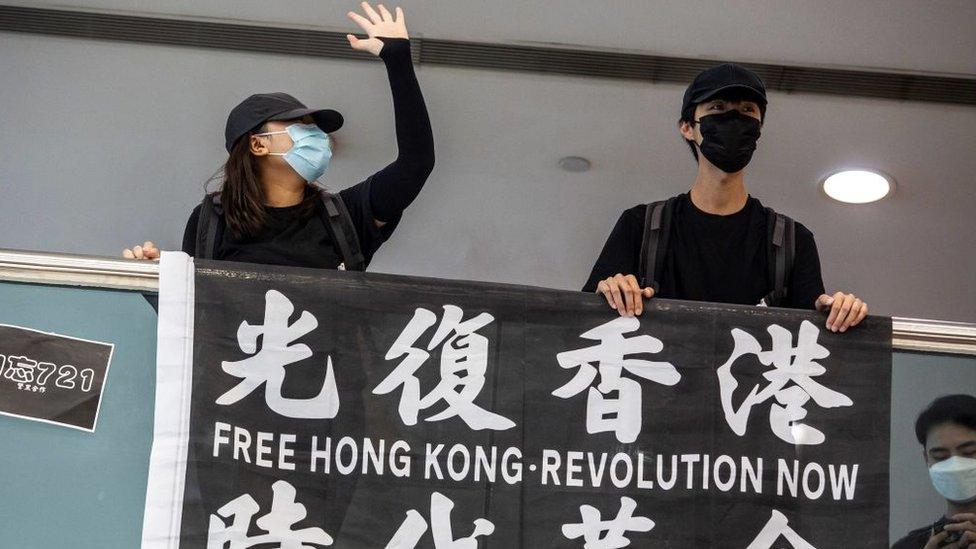Protests in China: What is happening and why
- Published
- comments
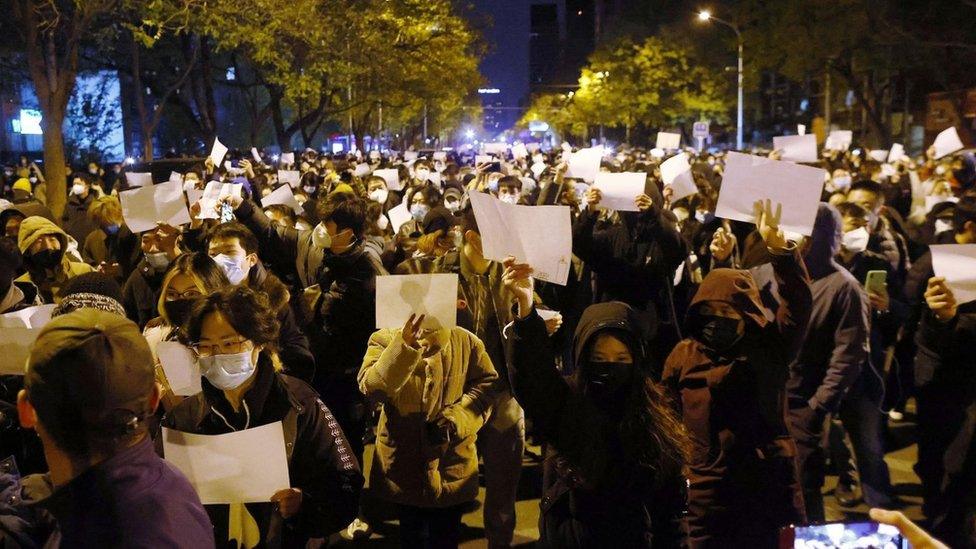
Protests continued into Sunday night in Beijing, with demonstrators holding blank white pieces of paper
Large protests are taking place in cities across China, as demonstrators demand an end to the country's strict coronavirus rules.
Protests like this and of this size are extremely unusual in China because any criticism of the country's China's communist leaders can result in tough punishment.
In some places protestors have sung the national anthem and listened to speeches, but elsewhere there have been clashes with police who tried to force demonstrators to leave the streets and people have been arrested.
Although national lockdowns may seem quite a long time ago in the UK, for millions of people in China they're still a daily reality - that's because of the Chinese President Xi Jinping's 'zero-Covid' lockdown policy.
Now many of those protesting want the president to resign - demonstrators were heard openly shouting "Xi Jinping, step down" and "Communist party, step down".
China's coronavirus rules
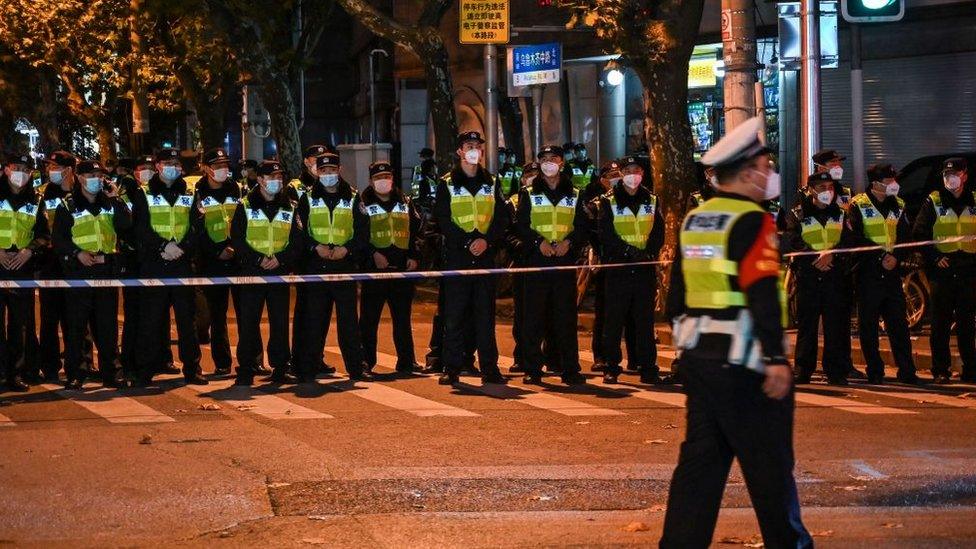
Police block people protesting from a road in Shanghai
For several months, countries around the world, including the UK haven't faced any restrictions because of coronavirus.
China is the last of the world's major countries to still enforce strict rules - such as city-wide Covid lockdowns - for its citizens to follow.
The rules remain in place in the country to protect elderly people from the disease and to try to slow its spread after relatively low numbers of people got vaccinated against the virus.
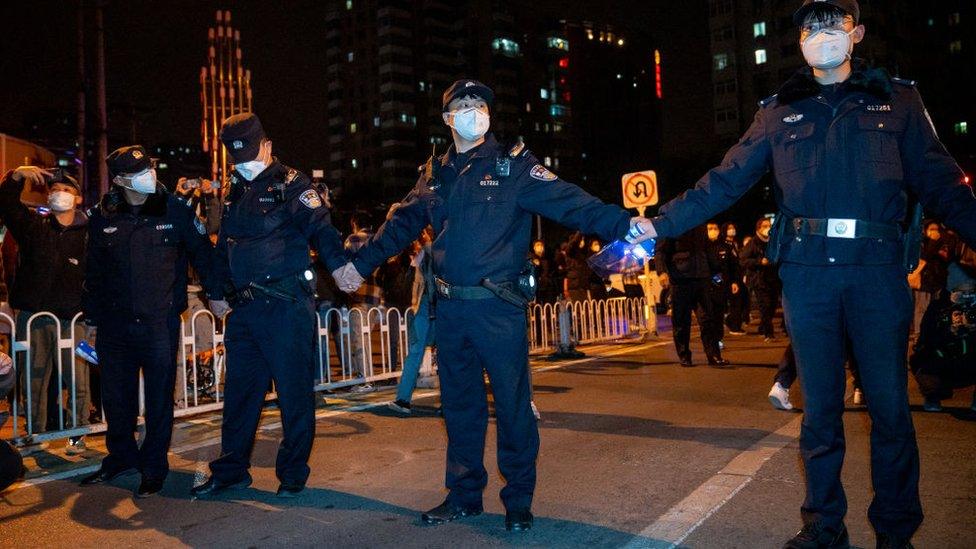
Police officers stand guard in Beijing
While the rest of the world is living more normally, China has stuck with a strict 'zero Covid' plan that uses lockdowns, mass testing and controls to stop people moving around, to stamp out the virus when it pops up.
Lockdowns can happen suddenly whenever there is a case of infection, which means, schools, offices and shops are closed quickly.
But despite the tough rules, China has seen coronavirus numbers hit an all-time record high since the pandemic began, putting more pressure on the government over its decisions.
Life in China
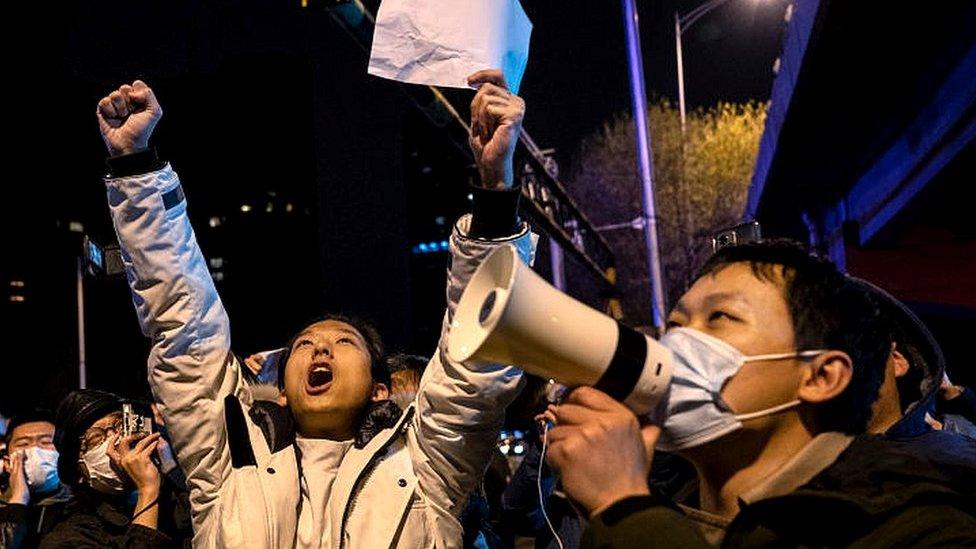
The Chinese Communist Party strictly controls of all aspects of Chinese life - from what children learn in school and what they watch on TV, to how they search the internet and what apps they can use.
Worldwide social media apps like Twitter, WhatsApp and Instagram are blocked in China and aren't available to ordinary Chinese people, who are only allowed to use similar Chinese versions of the sites that are approved by the government.
It's called censorship.
These protests in the country are so unusual because anything that is thought to be politically or socially sensitive is removed to control what Chinese people are able to see or read about.
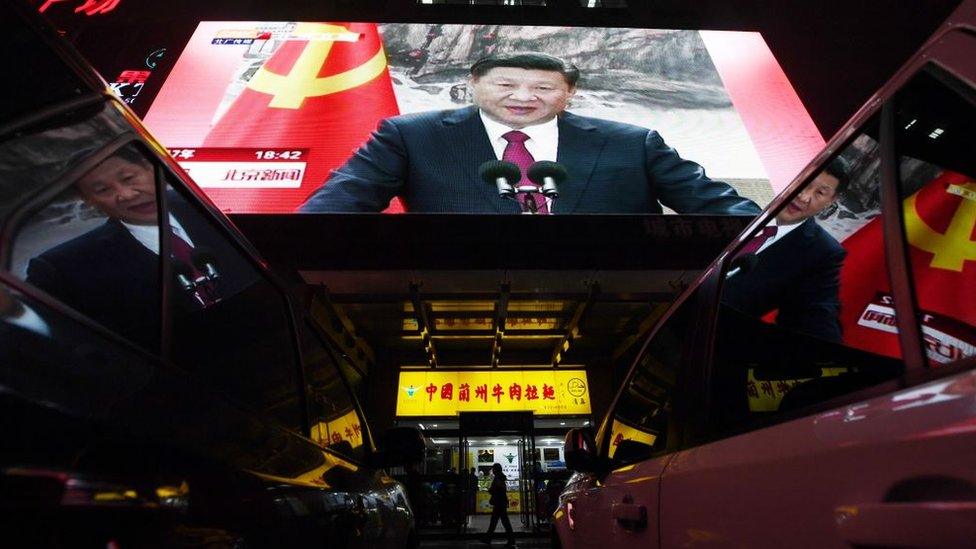
For example, China's government often says that its plan for dealing with Covid is the best in the world - but the World Cup is showing footage of people elsewhere in the world enjoying themselves, not using social distancing or wearing masks.
Reports have found that live footage from the 2022 World Cup has even been delayed and edited for those watching in China to try to stop Chinese citizens seeing large crowds gathered without any Covid restrictions.
'Shocked and a bit excited'
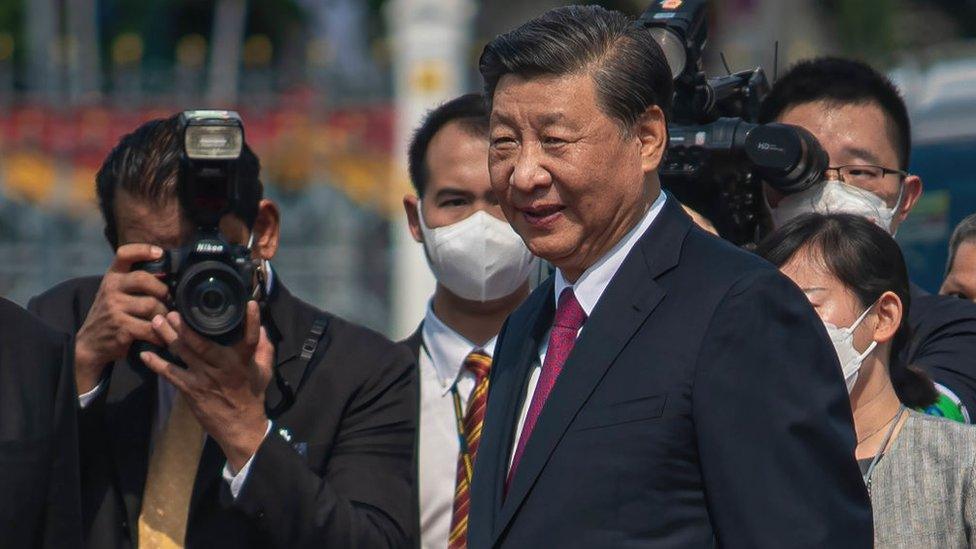
Public criticism of Chinese President Xi Jinping is very rare and can lead to punishment
Protesting on the streets and calling for President Xi to step down would've been unthinkable in China until recently.
One protester in Shanghai told the BBC that he felt "shocked and a bit excited" to see people out on the streets, calling it the first time he'd seen such large-scale protest against the government in the country.
He said lockdowns made him feel "sad, angry and hopeless", and had left him unable to see his mother who is sick.
- Published30 September 2019
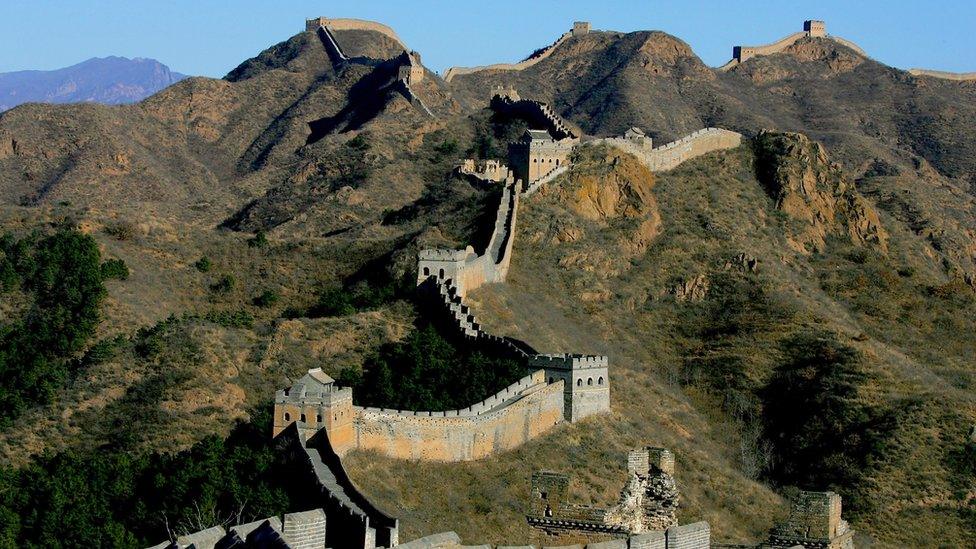
- Published15 April 2021
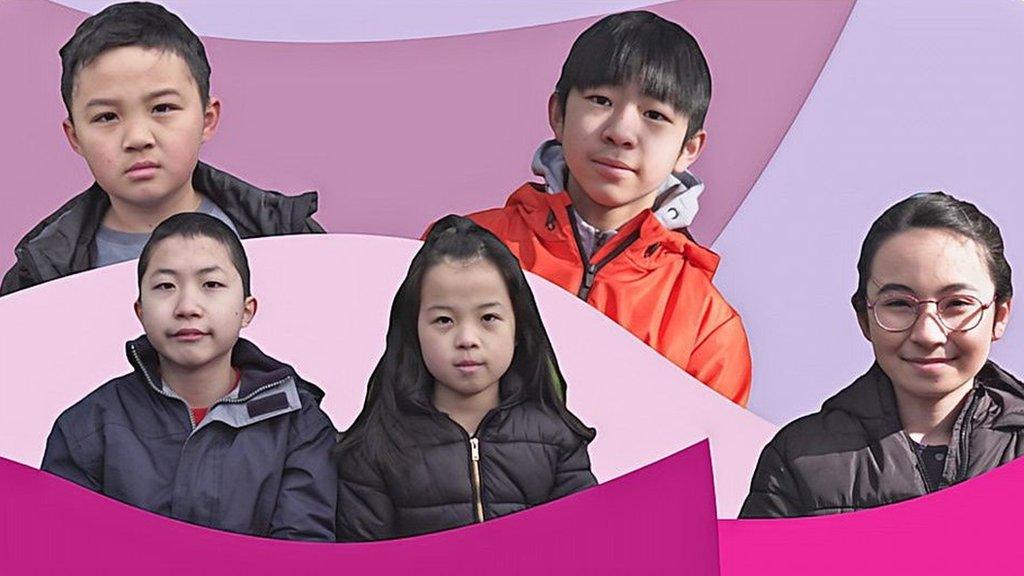
- Published28 May 2020
